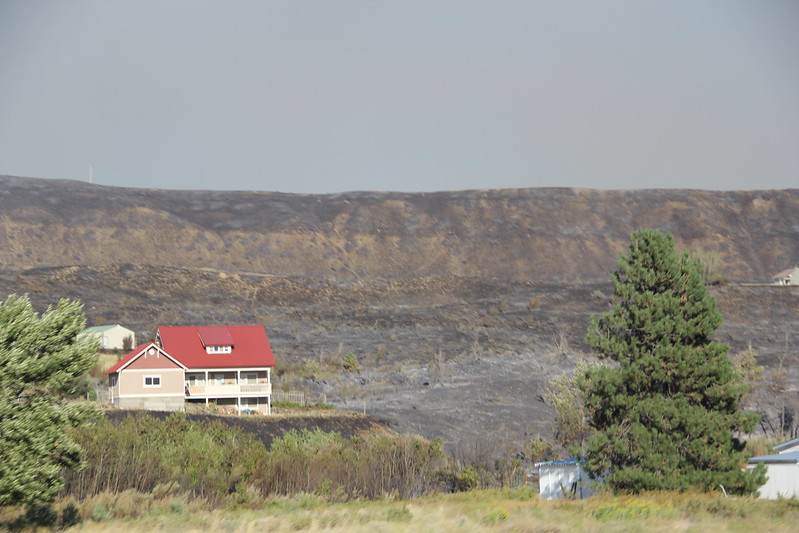
What to do if your insurance company says your home has too much wildfire risk
Listen
(Runtime 1:01)
Read
After thousands of homes were destroyed in wildfires in Los Angeles, some people in Washington state have worried about their home insurance. And some companies aren’t renewing policies in wildfire-prone areas, according to the Washington State Office of the Insurance Commissioner.
“It certainly can feel like a bit of a betrayal, almost like you’re being broken up with,” said Aaron VanTuyl, a spokesperson with the Washington State Office of the Insurance Commissioner.
The office hasn’t received information about insurance companies completely pulling out of the state, he said.
The state’s most recent data shows insurance companies didn’t renew around 7,000 homeowners policies in 2023, but they’re not exactly sure where all those homes are located. The state is requesting data from insurance companies to figure out how many policies aren’t renewed.
That will help them better understand the home insurance market, said David Forte, a policy analyst with the office. Forte spoke on a podcast by the commissioner’s office.
“ This is a data request from insurance companies to begin to tell us how they’re nonrenewing and canceling within Washington state,” Forte said.
When insurance companies look at wildfire risks, it’s not necessarily if there will be a wildfire. Instead, they assess whether a home will ignite. After many wildfire seasons, companies have figured out there’s a roughly 90% chance a home will be completely destroyed if it ignites, Forte said on the podcast.
If an insurance company drops a policy, there’s not much that can be done, Forte said.
“ There’s really no recourse,” he said. “The best thing to do is to shop around.”
Insurance companies can cancel or decide not to renew policies at any time, VanTuyl said. However, they should give homeowners 45 days notice. As of July 1, that increases to at least a 60 day notice.
The state offers very basic home insurance called a “FAIR plan,” paid for by insurance companies. That plan helps people cover the gap between finding insurers, VanTuyl said.
“ Every insurance company views risk differently, and most people have been able to find a company that will accept their risk if their old insurance company doesn’t want to anymore,” VanTuyl said.
People who live in areas with a lot of fires should also make sure their homes aren’t underinsured, Vantuyl said. That’s been a problem for homeowners in previous fires — they maxed out how much insurers were obligated to pay.
“That’s probably not going to be enough to cover the cost of rebuilding your home or making you whole after an incident like that,” he said.
To avoid that situation, VanTuyl said people should talk with their home insurance companies every year to make sure homes have enough coverage.















